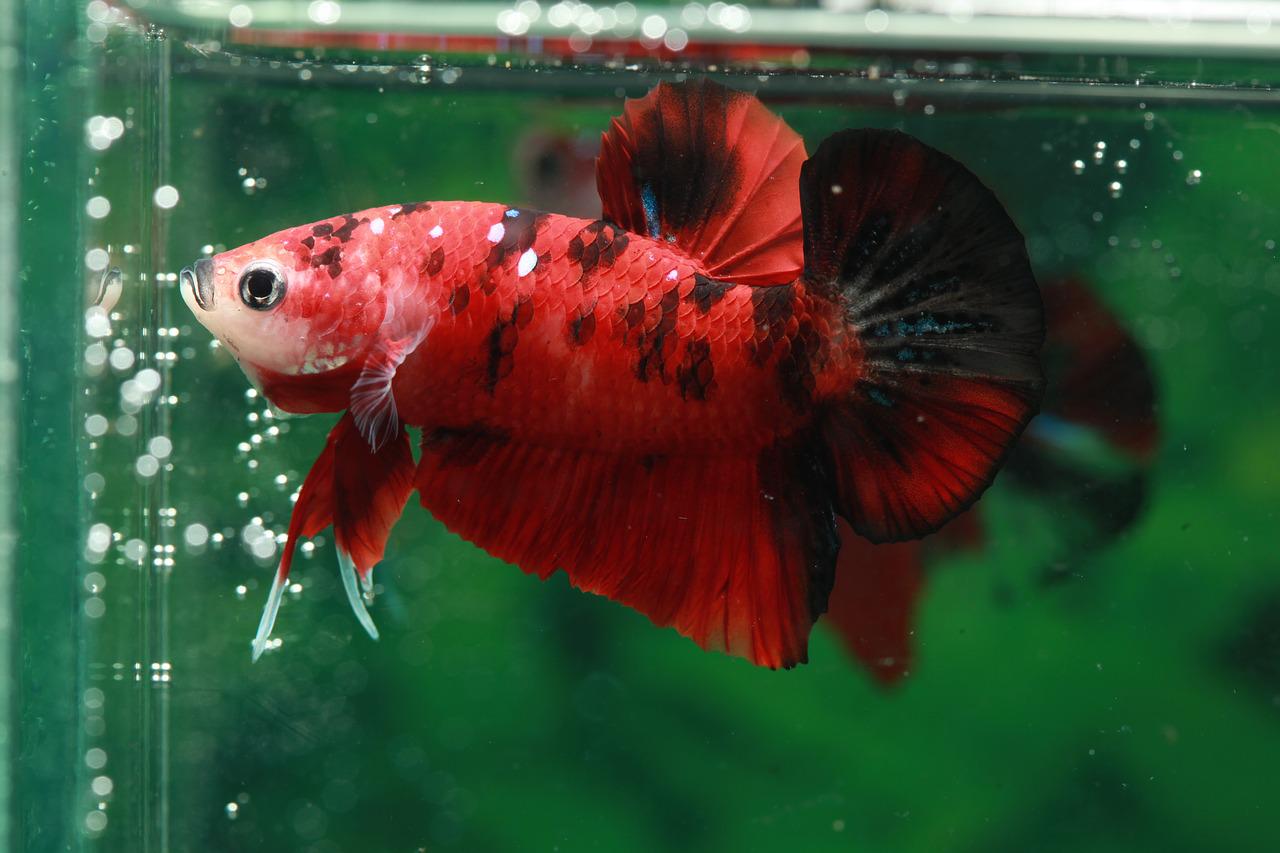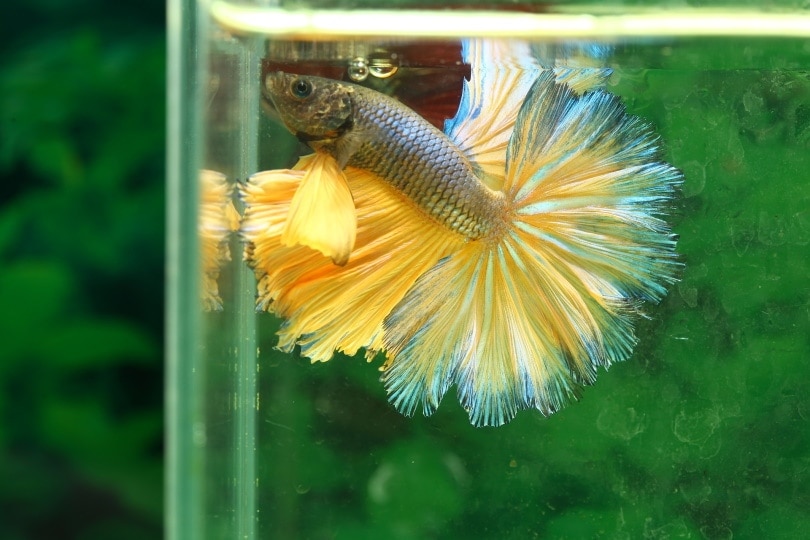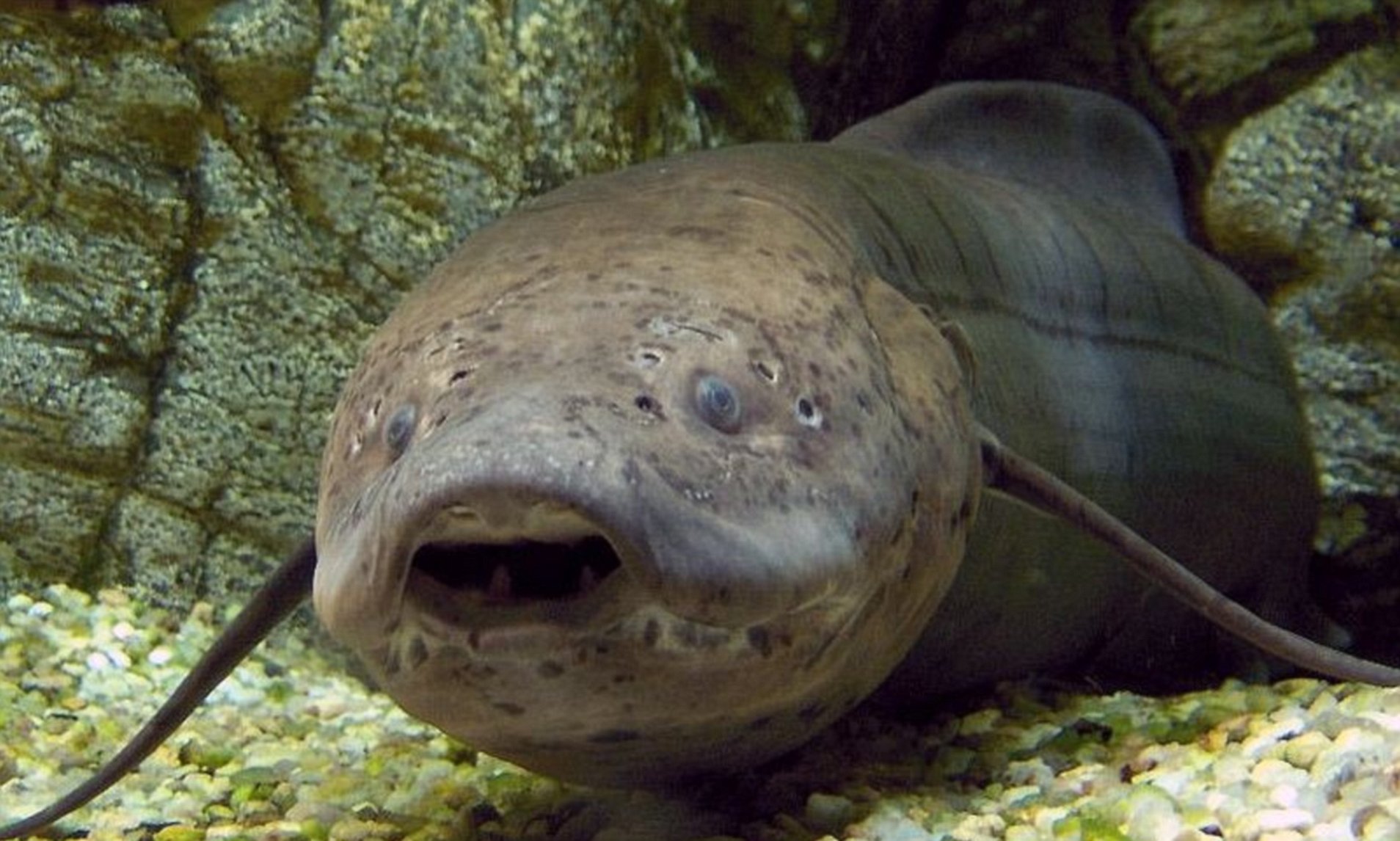Fish, like all living creatures, rely on food for energy to survive and thrive. However, there may be situations where fish need to go a period without eating. Understanding how long fish can survive without food and the factors influencing this timeframe is crucial for both hobbyists and aquaculture professionals.
Fish Metabolism and Food Needs
Fish are cold-blooded animals, meaning their body temperature fluctuates with the surrounding water. This characteristic directly impacts their metabolic rate, which determines their food requirements. In colder water, fish have a slower metabolism and require less food. Conversely, warmer water increases their metabolic rate, leading to a higher need for food.
Beyond water temperature, several other factors influence a fish’s ability to survive without food.
- Species Variations: Different fish species have varying metabolic rates and dietary needs. For instance, carnivorous fish generally require more frequent feeding than herbivorous fish.
- Size and Body Condition: Larger fish have more body reserves and can generally withstand longer periods without food compared to smaller fish. Similarly, fish in good health with adequate body fat stores will tolerate fasting better than those in poor condition.
- Water Quality and Environment: Water quality plays a significant role in fish health. Poor water quality, with high ammonia or low oxygen levels, can stress fish and deplete their energy reserves faster during a fasting period.

Fasting Guidelines for Fish
While fish can survive without food for a while, it’s important to approach fasting with caution. Here’s a breakdown of short-term and long-term fasting:
-
Short-term Fasting (Up to 2 Weeks): Generally safe for healthy adult fish with adequate body reserves. During this time, they tap into their energy stores, including fat and muscle. However, maintaining good water quality and closely monitoring fish behavior for signs of stress or illness is vital. Short-term fasting may even offer some health benefits, such as improved digestion and reduced inflammation.
-
Long-term Fasting (Beyond 2 Weeks): Detrimental to fish health. Prolonged food deprivation can lead to:
- Growth stunting and impaired reproductive function
- Increased vulnerability to stress and environmental factors
- Potential for irreversible damage to internal organs and tissues
Long-term fasting should only be undertaken under professional guidance, such as during transport or specific disease treatments.
Impact of Fasting on Fish Health
Fasting has both physiological and behavioral consequences for fish:
-
Physiological Effects:
- Reduced metabolic rate and energy expenditure
- Utilization of energy reserves, including body fat and muscle
- Potential for organ function impairment and immune system suppression
-
Behavioral Changes:
- Decreased activity levels and reduced appetite
- Potential changes in social interactions and increased aggression
- Increased susceptibility to predation and disease

Maintaining Fish Health During Fasting
If fasting is necessary, several strategies can help maintain fish health:
- Gradual Acclimation: Don’t abruptly stop feeding. Slowly decrease food intake over several days to allow their bodies to adapt.
- Alternative Food Sources: Consider offering natural algae, phytoplankton in ponds or aquariums, or live food like daphnia or brine shrimp for carnivorous fish.
- Optimal Water Quality: Regularly test and adjust water parameters like temperature, pH, and ammonia levels. Ensure clean and well-oxygenated water for optimal health.
- Minimize Stress: Reduce stress factors like noise, strong light, and overcrowding.
Conclusion
The duration a fish can survive without food depends on numerous factors like species, water temperature, size, and body condition. While healthy adults can generally manage for up to 2 weeks, long-term fasting is detrimental. Proper planning, close monitoring, and adherence to appropriate fasting guidelines are crucial. When in doubt, seeking guidance from experienced professionals ensures the well-being of your fish.
Additional Considerations
- The impact of fasting on specific fish species and life stages (juveniles vs. adults) can vary significantly.
- Gut microbiota, the community of microorganisms in a fish’s digestive tract, plays a crucial role in health during fasting and may influence their ability to cope with food deprivation.
- Fasting has potential therapeutic applications in fish management, such as treating diseases or reducing stress. However, ethical considerations regarding animal welfare must be addressed.
Research and References
This blog post draws upon various scientific sources, including:
- Jobling, M. (2019). Fish nutrition and feeding. Elsevier.
- Weatherley, A. H., & Gill, H. S. (1983). The energy balance of fish: Growth, maintenance, and activity. Academic Press.
- Additional research on the impact of fasting on specific fish species and the role of gut microbiota can be found in the provided references.
-
The Hidden World of Fish Fasting: A Deep Dive
The previous section provided a foundational understanding of fish and fasting. Now, let’s delve deeper into some intriguing aspects of this topic.
Species Specificity: A Tailored Approach
Different fish species have evolved unique dietary needs and metabolic rates. For example, fish like salmon, with their active lifestyles, require more frequent feeding compared to bottom-dwellers like catfish, who scavenge for food less frequently. Understanding these variations is crucial for determining appropriate fasting protocols.
The Gut Microbiota: A Microscopic Ally
The fish’s gut isn’t just a simple passage for food. It houses a diverse community of microorganisms known as the gut microbiota. These tiny organisms play a vital role in digestion, nutrient absorption, and even immune function. Interestingly, research suggests that fasting can alter the composition of gut microbiota. While the long-term implications are still being explored, understanding this connection could provide insights into how fish cope with food deprivation.
Fasting for Health: A Therapeutic Tool?
The concept of fasting as a therapeutic strategy might seem counterintuitive. However, recent studies suggest that short-term fasting can offer some health benefits for fish. For instance, it may trigger autophagy, a cellular process that cleans up damaged cells and promotes renewal, potentially enhancing disease resistance. Additionally, fasting can reduce inflammation and improve digestive efficiency. It’s important to note that these are emerging areas of research, and further exploration is needed to determine the optimal fasting protocols and their applications for specific fish diseases.
Ethical Considerations: Balancing Needs
The practice of fish fasting raises ethical concerns regarding animal welfare. It’s paramount to ensure that any fasting period is carefully planned, justified, and monitored to minimize any potential harm to the fish. Alternative strategies, such as reducing feeding frequency or providing low-calorie diets, should be explored whenever possible.
The Future of Fish Fasting: Balancing Knowledge and Responsibility
As research on fish fasting progresses, we gain new insights into its impact on fish health, disease management, and even gut microbiota. However, it’s crucial to remember that responsible fishkeeping practices prioritize the well-being of the fish. By combining scientific knowledge with ethical considerations, we can ensure that fasting, if necessary, is implemented in a way that minimizes stress and promotes overall fish health.


